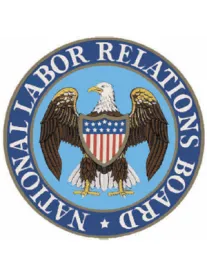As indicated in our previous blog on this topic, on May 30, 2020, the U.S. District Court for the District of Columbia issued a two page order invalidating five elements of the NLRB’s 2019 election regulation, based on Count One of the plaintiff’s complaint. On June 7, the court issued its promised memorandum opinion further explaining that order.
The opinion makes three key points.
First, the Court noted that under the Administrative Procedure Act, the norm is for notice and comment rule making. An exception in the APA, however, permits agencies to forego notice and comment requirements when promulgating “rules of agency organization, procedure, or practice.” 5 U.S.C. Sec. 553(b)(A). The NLRB had relied on this exception to promulgate the election rule without notice and comment. As the Court stated, “The nub of the instant dispute is the NLRB’s valiant effort to shoehorn five parts of its 2019 Election Rule into this narrow classification.” Slip op. at 28.
Following a thorough discussion of the five parts of the rule it had held invalid in its May 30 order, the Court concluded: “[T]he challenged provisions carry many of the indicia of substantive rules — i.e., they grant rights and impose obligations; they produce ‘significant effects on private interests’; and they ‘foreclose alternative courses of action’ or ‘conclusively bind the . . . affected private parties.’ . . . Therefore, this Court finds the NLRB’s promulgation of these particular [five] rules without engaging in notice-and-comment rulemaking violated the APA.” Slip op. at 42-42 (citation omitted).
Second, the Court found that the five invalidated parts of the election regulation were severable from the remainder of the election rule. The Court rejected AFL-CIO’s argument that the election regulation should be invalidated in its entirety. Slip op. at 43-51. The Court stated that its severability ruling was not prejudical to plaintiffs, however, who are “always free to press an independent basis for setting aside the remainder of the rule and ask the court to do so . . . .” Slip op. at 48 (emphasis in original).
Indeed, the plaintiff’s complaint had three additional counts alleging that the election rule was arbitrary and capricious in whole and in part, and was contrary the National Labor Relations Act. In a footnote, the Court observed: “[T]he AFL-CIO might well have argued that . . . the Court should . . . proceed to reach the merits of its alternative claims . . . . But for whatever reason, the AFL-CIO maintained that this Court need not reach its other claims, apparently assuming that the Court would agree with its severability analysis.” Slip op. at 48, n. 13.
Third, Court made it clear that the NLRB would have very broad discretion in dealing with the Court’s remand of the remaining rules for consideration in light of the Court’s opinion and order. “[T]he agency decides what happens next when all or part of a challenged action has been invalidated.” Slip op. at 46 (emphasis in original).
In a footnote, the Court held: “Thus, no matter how illogical it might seem to this Court for the NLRB to proceed to enforce the remaining portions of the 2019 Election Rule, it is up to the agency to determine which otherwise lawful policy proscriptions it wishes to adopt and enforce, and a simple remand of the matter gives the agency the best opportunity to make that determination in the first instance.” Slip op. at 47, n. 12.
Following the Court’s May 30 order, the NLRB had swiftly acted to implement the remaining election regulations. The AFL-CIO also filed a motion for clarification of the May 30 order seeking, among other things, a ruling on the swiftness of the NLRB’s action. The Court signaled its inclination to deny that motion in its memorandum opinion, stating that “no matter how swiftly the agency undertakes to make that decision . . . [courts] ‘do not, and cannot, police agency deliberations as a general matter . . . .’ Thus, the AFL-CIO’s recent motion . . . raises an issue that is plainly non-justiciable.” Slip op. at 48, n. 13.
While the Court’s ruling, and the parties’ respective reactions to it, paint a bit of a muddy picture on what comes next, it is clear that there are still other shoes to drop in this case. The Board has indicated its intent to appeal the court’s decision invalidating the five elements of the election rule. The AFL-CIO may re-assert the counts of its complaint not addressed in the Court’s decision, or make additional arguments based on the NLRB’s actions on remand, as further grounds for invalidating the entire election rule. Or, it may file its own appeal of the Court’s decision seeking appellate review of the Court’s decision not to deal with the other counts in the complaint.
For now, the NLRB will conduct elections in accordance with the undisturbed portions of the election rules, but how they may be impacted by further court litigation is unknown. It therefore will be very important for employers involved in representation cases to stay up to speed on developments in this dynamic arena.





 />i
/>i


